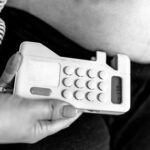When do you start having pregnancy symptoms? Many women wonder about this as they eagerly anticipate the possibility of being pregnant. Understanding early pregnancy symptoms is an important part of family planning and prenatal care. This article will explore the common physical, emotional, and psychological symptoms that may indicate early pregnancy, along with the individual variations and factors affecting their onset.
During the early stages of pregnancy, women may experience a range of physical and emotional changes that can be attributed to hormonal shifts in the body. From tender breasts to mood swings, these symptoms can vary from woman to woman. It’s essential to understand these signs, their time frame for onset, and how to recognize them as potential indicators of pregnancy.
This article aims to provide insight into recognizing the signs of early pregnancy, understanding the factors that affect when these symptoms may start, and knowing when it’s appropriate to seek medical consultation about potential pregnancy. By gaining a better understanding of early pregnancy symptoms, individuals can prepare for the journey ahead with knowledge and confidence.
What to Expect
Experiencing early pregnancy symptoms can be both an exciting and overwhelming time for many women. Knowing what to expect can help ease any anxiety as well as prepare you for the changes that may be coming. While every woman’s experience is different, there are some common early pregnancy symptoms that are frequently reported.
One of the most well-known early pregnancy symptoms is morning sickness, which can actually occur at any time of day. This includes feelings of nausea, vomiting, and aversion to certain smells or foods. Fatigue is another prevalent symptom, as your body works overtime to support the developing fetus. You may also notice breast tenderness and changes in size as hormone levels shift in preparation for breastfeeding.
Other common symptoms include frequent urination, due to the increased blood flow to the kidneys and growing uterus pressing on the bladder. Some women also experience heightened sensitivity to odors and an increase in vaginal discharge. These physical changes are all normal indications that your body is adjusting to the changes of early pregnancy.
It’s important to remember that not all women will experience these symptoms at the same time, or even at all. Every woman’s body responds differently to pregnancy, so it’s essential to recognize individual variations when it comes to early pregnancy symptoms.
Factors such as genetics, overall health, and lifestyle choices can influence when and how intensely these symptoms appear. Nonetheless, being aware of these potential signs can help many women recognize when they might be pregnant and take appropriate steps for prenatal care.
Physical Changes
During the early stages of pregnancy, a woman’s body undergoes numerous physical changes as a result of hormonal shifts. These changes are essential for the growth and development of the fetus, but they can also lead to uncomfortable symptoms for the mother. Understanding these physical changes can help women recognize early signs of pregnancy and seek appropriate care.
Hormonal Changes
One of the first physical changes that occur in early pregnancy is a surge in hormones, particularly human chorionic gonadotropin (hCG) and progesterone. These hormones play crucial roles in maintaining the pregnancy by supporting the uterine lining, preventing miscarriage, and promoting fetal development. However, they can also lead to symptoms such as breast tenderness, fatigue, and nausea.
Body Changes
In addition to hormonal shifts, a woman’s body undergoes various changes during early pregnancy. The uterus begins to expand as it accommodates the growing fetus, which may cause mild cramping or discomfort in the lower abdomen. Some women also experience frequent urination due to increased pressure on the bladder. Furthermore, changes in blood flow and circulation can lead to dizziness or lightheadedness.
Other Symptoms
Other physical symptoms commonly experienced during early pregnancy include food cravings or aversions, heightened sense of smell, and constipation. Some women may also notice changes in their skin, such as acne or darkening of the nipples and areolas. It’s important to note that not all women will experience these symptoms, and their severity can vary from person to person.
Emotional and Psychological Symptoms
During early pregnancy, women may experience a range of emotional and psychological symptoms that can be attributed to the hormonal changes occurring in their bodies. These symptoms can vary from woman to woman, but they are an integral part of the overall pregnancy experience. Understanding and recognizing these emotional and psychological symptoms is essential for expectant mothers to know what to expect and how to cope with them effectively.
Understanding Mood Swings
One common emotional symptom during early pregnancy is mood swings. These sudden shifts in emotions can be intense and overwhelming, causing pregnant women to feel a wide range of feelings within a short period. Hormonal fluctuations, fatigue, and stress are some factors contributing to mood swings during this time. It is important for pregnant women to communicate openly with their partners and healthcare providers about their fluctuating moods so that they can receive the necessary support and understanding.
Changes in Mental Well-Being
In addition to mood swings, pregnant women may also experience changes in their mental well-being. Anxiety, fear, and heightened emotions are common during early pregnancy as women navigate the physical changes occurring in their bodies and the anticipation of becoming a mother.
It is crucial for expectant mothers to prioritize self-care practices such as meditation, gentle exercise, or seeking professional counseling if necessary. Open communication with loved ones about mental well-being challenges is vital for receiving the support needed during this phase.
Coping Strategies
Coping strategies for emotional and psychological symptoms during early pregnancy include maintaining a healthy lifestyle, getting adequate rest, engaging in stress-reducing activities, and seeking social support from friends and family members. Taking time for oneself and engaging in activities that bring joy can also contribute to improved mental well-being. Additionally, speaking with a healthcare provider about any concerning emotional or psychological symptoms is important to ensure proper guidance and care throughout the early stages of pregnancy.
Overall, it’s essential for pregnant women to recognize that experiencing emotional and psychological symptoms during early pregnancy is normal. By being aware of these symptoms and practicing self-care strategies, expectant mothers can navigate through this phase with greater ease while taking care of their mental well-being.
Time Frame
Pregnancy symptoms vary from woman to woman, but they typically start to appear around 6-8 weeks after a missed period. This is because it takes time for the pregnancy hormone hCG to build up in your system. However, some women may experience symptoms as early as a week after conception.
One of the earliest signs of pregnancy is a missed period, followed by other common symptoms such as nausea, fatigue, breast tenderness, and frequent urination. These early signs can often be mistaken for premenstrual symptoms, so it’s important to pay attention to your body and take a pregnancy test if you suspect you may be pregnant.
It’s important to note that not all women will experience the same symptoms or with the same intensity. Factors such as age, genetics, and overall health can affect when pregnancy symptoms start and how they manifest. If you have any concerns about your symptoms or their timing, consult with a healthcare professional for personalized guidance.
| Early Pregnancy Symptom | Typical Onset |
|---|---|
| Nausea | 2-8 weeks after conception |
| Fatigue | 1-6 weeks after conception |
| Breast Tenderness | 2-3 weeks after conception |
Individual Variations
There are a variety of factors that can affect when pregnancy symptoms start to appear. While some women may begin experiencing symptoms as early as a few days after conception, others may not notice any changes until several weeks into their pregnancy. Here are some common factors that can influence the onset of early pregnancy symptoms:
- Hormonal levels: The levels of hormones such as estrogen and progesterone can vary from woman to woman, which can impact when pregnancy symptoms become noticeable.
- Overall health and lifestyle: Women who are generally healthy and have a balanced lifestyle may experience milder or delayed pregnancy symptoms compared to those with pre-existing health conditions or unhealthy habits.
- Stress levels: High stress levels can affect hormone production and regulation, potentially delaying the onset of pregnancy symptoms in some women.
It’s important to remember that every woman’s body is unique, and therefore the timing of pregnancy symptoms can vary widely from person to person. Additionally, individual pregnancies within the same woman may also produce different symptom onset times.
Ultimately, it’s essential for women to listen to their bodies and pay attention to any changes they may be experiencing. If there are concerns about the timing or severity of pregnancy symptoms, consulting with a healthcare professional can provide guidance and reassurance during this critical time.
Furthermore, keep in mind that while recognizing early pregnancy symptoms is crucial, it’s equally important to receive medical consultation when necessary. Seeking regular prenatal care is vital for ensuring both the mother’s and baby’s wellbeing throughout the duration of the pregnancy.
Recognizing Signs
During the early stages of pregnancy, it can be quite common for women to experience a range of symptoms that may indicate they are expecting. These symptoms can often be mistaken for other conditions or go unnoticed, so it’s important to understand how to recognize them.
Some of the most typical early pregnancy symptoms include nausea, fatigue, breast tenderness, and missed periods. However, every woman’s experience is unique, so it’s essential to be aware of individual variations and factors that may affect when these symptoms begin to appear.
One way to identify early pregnancy symptoms is by paying close attention to your body and any changes you may be experiencing. Many women report feeling more fatigued than usual in the early weeks of pregnancy, while others may notice an increase in their need to urinate frequently.
Additionally, many women also experience morning sickness or nausea during this time. It’s important to remember that not all women will have the same symptoms or experience them to the same extent.
In addition to physical symptoms, emotional and psychological changes are also common in early pregnancy. Mood swings, heightened emotions, and changes in mental well-being can all be indicators of pregnancy.
Paying attention to these changes and being aware of the potential impact of hormonal shifts on your emotional state can help in identifying early pregnancy symptoms. If you suspect you may be pregnant and are experiencing any of these symptoms, it may be beneficial to consider taking a home pregnancy test or consulting a healthcare professional for further guidance.
Seeking Medical Consultation
When it comes to pregnancy symptoms, it’s important to know when to seek medical consultation. While experiencing certain discomforts is common during the early stages of pregnancy, there are instances when it’s necessary to consult a doctor. Here are some signs that indicate you should seek medical advice:
- Severe abdominal pain: If you experience intense and persistent abdominal pain, especially if it’s accompanied by vaginal bleeding, it could be a sign of ectopic pregnancy or miscarriage.
- Excessive nausea and vomiting: While morning sickness is normal, severe and prolonged nausea and vomiting can lead to dehydration and nutrient deficiencies, requiring medical attention.
- Unusual vaginal discharge or bleeding: Any abnormal changes in vaginal discharge or bleeding may indicate an infection or complications with the pregnancy that need prompt evaluation.
It’s also important to remember that every woman’s experience with pregnancy symptoms is unique. What might be concerning for one person could be completely normal for another. If at any point you feel unsure about your symptoms or their severity, don’t hesitate to reach out to your healthcare provider for guidance.
Remember that seeking medical consultation doesn’t necessarily mean there is cause for alarm. It simply allows you to receive professional advice and ensure the well-being of both you and your growing baby. Your doctor can help alleviate any concerns you may have and provide personalized care based on your individual needs.
Lastly, always trust your instincts. If something feels off or different from what you expected during this time, don’t hesitate to schedule an appointment with your healthcare provider. It’s better to address any potential issues sooner rather than later for peace of mind and proper management of your health during pregnancy.
With prompt medical attention when necessary, you can navigate the early stages of pregnancy with confidence and ensure a healthy start for both you and your baby.
Conclusion
In conclusion, while the onset of pregnancy symptoms can vary from woman to woman, it is important to recognize and embrace these early signs as a natural part of the pregnancy journey. Understanding and being aware of common early pregnancy symptoms such as nausea, fatigue, breast tenderness, and mood swings can help women navigate this new phase of their lives with confidence and ease.
It is also essential to remember that every woman experiences pregnancy differently, and individual variations in symptom onset and severity are completely normal.
As women experience physical changes in their bodies and hormonal shifts during early pregnancy, it is crucial for them to prioritize self-care and seek support from loved ones. Taking care of one’s physical health through proper nutrition, rest, and exercise can help alleviate some discomfort associated with early pregnancy symptoms. Additionally, maintaining open communication with healthcare providers can provide reassurance and guidance throughout this time.
Lastly, recognizing the signs of early pregnancy symptoms is important for seeking medical consultation when necessary. If women have concerns about their symptoms or if they experience any unusual or severe discomfort, they should not hesitate to consult a healthcare professional.
This proactive approach ensures that any potential issues are addressed promptly, allowing women to focus on preparing for the next stages of their pregnancy journey with peace of mind. Embracing the experience of early pregnancy symptoms sets the stage for a healthy and fulfilling pregnancy journey ahead.
Frequently Asked Questions
How Soon Can You Get Symptoms of Pregnancy?
Symptoms of pregnancy can appear as early as one week after conception, although most women begin to notice symptoms around the fourth week. Early signs can include implantation bleeding, breast tenderness, and nausea.
What Are Symptoms of Pregnancy at 1 Week?
At 1 week pregnant, women may experience symptoms such as fatigue, mood swings, and heightened sense of smell. Some may also notice slight spotting due to implantation. However, many women may not experience any symptoms at this early stage.
How Soon Can You Know if You Are Pregnant?
It is possible to know if you are pregnant as early as 7-10 days after conception by taking a home pregnancy test. These tests detect the hormone hCG in your urine to indicate whether or not you are pregnant. Blood tests at a doctor’s office can also provide an early confirmation of pregnancy.

Welcome to my fertility blog. This is a space where I will be sharing my experiences as I navigate through the world of fertility treatments, as well as provide information and resources about fertility and pregnancy.





